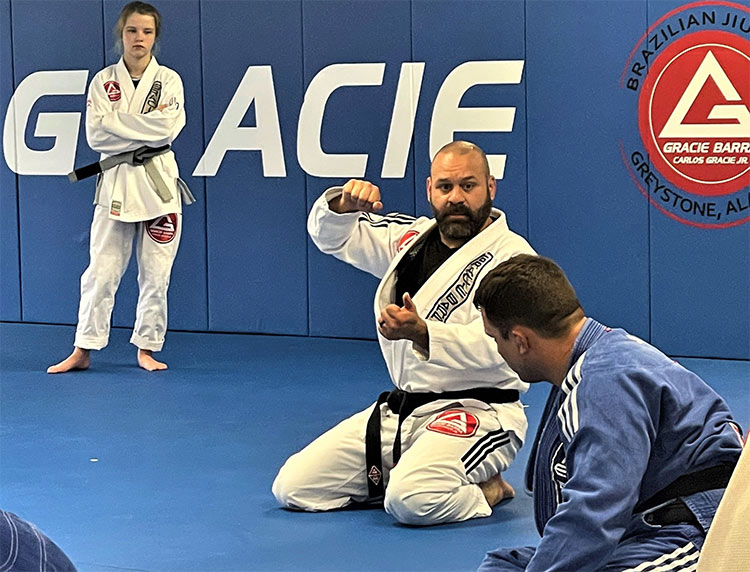“But, when will I get good?” How often have I asked that over the last two years of training at Gracie Barra? When will I be good enough? When will I reach a level of competence? Why do I feel like people think I’m horrible? Why am I horrible? When will I be able to submit someone with no problem?
To submit someone on the mat is the highest form of victory in Jiu-Jitsu, right? There are no points to be counted, no referees to decide a winner, and no disputed outcome. For many training at Gracie Barra, across the world, the goal is to become so good that submissions come easily.
This is a laudable goal and one for which we should all strive if we want to improve our technical skill, but I would propose that we, as practitioners of “The Gentle Art” focus on something different: submission to the process of learning Jiu-Jitsu.
From my perspective, there are two aspects to submitting to the process: developmental and philosophical.
When my niece walks into her first day of kindergarten in August, her teacher will have no expectation for her to solve the second law of thermodynamics. She will be more concerned with teaching simple addition and subtraction. The developmental process must be allowed to flow naturally, giving my niece the proper pace and speed to move through the mathematical world: skill building upon skill.
Similarly, when I’m on the mat, as a blue belt, and engage my partner I can’t expect to pull off a massively impressive armbar, if I have not gone through the process of learning the basics: skill building upon skill. To execute even a simple Armbar I need to know a myriad of fundamental moves: grip placement, arm control, hip movement, balance, timing, etc. There is a reason why we all start out in the Fundamentals class. Helpful tip: If you’ve given up going, stopping by the Fundamentals class at your academy every so often is a good move for everyone. It gets you back to your roots and white belts love and need the experience.
Many Tenets To Learn Jiu Jitsu
Submitting to the philosophy of Jiu-Jitsu is more complicated. It requires a deeper commitment and can, at times, be elusive. The following are a few of the many tenets to the process.
1. Humility: You are only the best until the best comes around. Even world champions are tapped. Repeatedly. Every day. Have the humility to accept that you have much to learn, and that the learning process never ends. A black belt is just the beginning of mastering the art, not the end.
2. Patience: Jiu-Jitsu is as much about mind as it is body. Learning to take a moment, pause, and think through a move is key to mastering technique. The journey through Jiu-Jitsu is a lifelong endeavor. Have the patience to fully embrace the journey.
3. Control: Frustration, anger and unnecessary aggression impede growth and are antithetical to the philosophical foundations of Jiu-Jitsu. Just as controlling your opponents’ hips prevents escape, controlling negative emotions promotes harmony and control on and off the mat.
4. Tenacity: Be tenacious in all you do. When you get tapped, get back in. When you get taken down, get back up. Failure and frustration are part of the process. Accept them and learn from them tenaciously.
5. Cooperation: We cannot learn Jiu-Jitsu alone. Teamwork and cooperation are fundamental elements to the process. Every success and defeat must be shared as a school, a family. Take the time to get to know one another. The stronger we are as a team, the stronger we become as practitioners, as well.
6. Have Fun: Jiu-Jitsu isn’t a zero-sum game. There may be winners and losers for tournaments, but in reality, as long as you step onto the mat and have fun while doing it, everyone wins. I know, it sounds cheesy, but it’s true. Jiu-Jitsu can be, and is, pure fun.


